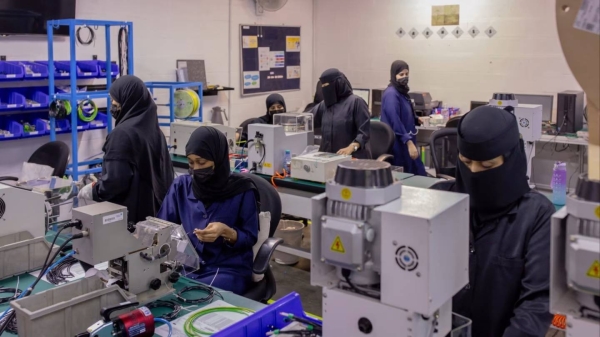The Ministry of Human Resources and Social Development has reported a 45 percent increase in the wages of Saudis working in the private sector in the year 2024. This significant growth is attributed to efforts to empower women, with their participation rate in the labor market reaching 35.8 percent, surpassing the targets set by Vision 2030. Additionally, the percentage of women in middle and senior management positions rose to 43 percent, reflecting the improvement of living standards and the ministry’s dedication to enhancing economic participation.
Throughout 2024, the Ministry achieved a number of qualitative milestones that have solidified Saudi Arabia’s position as a leader in regional and international development. The Kingdom has made strides in achieving the goals set by Vision 2030 ahead of schedule, demonstrating a commitment to fostering a balanced work environment and increasing productivity. The number of Saudis employed in the private sector grew to 2.4 million, including 361,000 individuals entering the labor market for the first time. The private sector accounted for over 50 percent of citizen employment.
Saudi Arabia experienced a historic decrease in the overall unemployment rate, reaching 3.3 percent and ranking fifth among the G20 countries. The unemployment rate among Saudis also dropped to 7.1 percent, surpassing the target set by Vision 2030 six years ahead of schedule. The Ministry’s focus on social responsibility has propelled the Kingdom to 16th place in the Social Responsibility Index, with companies contributing 4.15 percent to social spending. The private sector alone contributed over SR4 billion through the National Social Responsibility Platform.
To enhance the readiness of national cadres, the Ministry launched the Waad national training campaign, providing 1.3 million training opportunities. The unified national employment platform, Jadarat, offered over 210,000 job vacancies throughout the year, with an average of 700 new vacancies per day. In terms of digital transformation, the Ministry saw significant progress with a 74 percent decrease in beneficiary visits to branches. Automated digital services now account for 1,000 services, representing 80 percent of the total services provided.
In conclusion, the Ministry of Human Resources and Social Development’s efforts in 2024 have led to substantial improvements in the economic participation of Saudis, particularly women, and have contributed to the overall development and growth of the Kingdom. Achieving goals set by Vision 2030 ahead of schedule, reducing unemployment rates, and promoting social responsibility reflect the Ministry’s commitment to advancing the workforce and creating a conducive environment for productivity and sustainability. With continued focus on empowering national cadres and embracing digital transformation, Saudi Arabia is poised for further success and leadership in the global landscape.


























